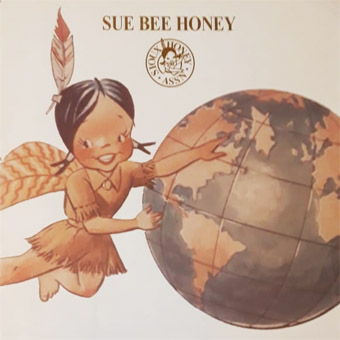BARKMAN HONEY AND SUNLAND TRAIDING RESPOND TO DOC AND CHARGE ON SIOUX
May 13th, 2021
 Versión en Castellano
Versión en Castellano (Espacio Apícola, May 13th 2021)After 10 days of the The Guardian publication about the accusations made by Kelvin Adee, president of the American Honey Producers Assn. (AHPA), against several companies linked to the Honey Packers Association of the United States, two of the accused honey packers responded this Tuesday, May 11, before the Department of Commerce (DOC) with testimonial statements, during the preliminary investigation of anti-dumping actions against honeys from Argentina, Brazil, India, Ukraine and Vietnam.
(Espacio Apícola, May 13th 2021)After 10 days of the The Guardian publication about the accusations made by Kelvin Adee, president of the American Honey Producers Assn. (AHPA), against several companies linked to the Honey Packers Association of the United States, two of the accused honey packers responded this Tuesday, May 11, before the Department of Commerce (DOC) with testimonial statements, during the preliminary investigation of anti-dumping actions against honeys from Argentina, Brazil, India, Ukraine and Vietnam.The press operation through The Guardian, which featured Kelvin Adee, Henry's Bullfrog Bees and Golden Prairie, has had a great impact and generated surprise, not only for showing the internal conflicts in the commercial honey sector of the USA but also for accusing of complicity in the importation of fraudulent honey to the seal True Source Honey (TSH), to the auditors and the certifier of the NSF itself, and even to the Intertek laboratory.
On behalf of Barkman Honey, LLC, one of the accused packers by Adee, Mr. Eric Wenger presentation declared in defense of the "True Source Honey" (TSH) certification system that the honey marketing chains more prominent demands of their suppliers, as a prerequisite to be considered as such. "Yet even though many customers require True Source Certification, the Sioux Honey Association, and most Sioux Honey Association members, refuse to participate. The outcome of this decision is that the Sioux Honey Association is willingly foregoing a growing portion of its potential customer base, effectively devaluing their product and limiting access to markets. To suggest that difficulty selling domestic honey is entirely due to competition from imports does not tell the whole story."
Nick Sargeantson, president and currently sole owner of Sunland Traiding, Inc., also accused by Adee, at least in the public document he gave a more diplomatic response, highlighting mainly the inability of US beekeepers to supply the domestic market.
Honey production in the United States has remained at around 70,000 tons in the last 8 years and demand for honey in the United States grew from 215,000 tons in 2013 to more than 270,000 tons in 2020, according to the Ken Stickevers report.
Returning to Sargeantson's presentation, on behalf of Sunland Taiding, Inc. and specifically in his comment referring to honeys from Argentina he says: "Some imported honey, such as Argentine and Brazilian, is sold in the retail sector. Retail consumers generally consider such honey to be similar to the domestic product, particularly in the case of Argentine, and of equal, if not superior, quality. Sioux Honey Association has periodically purchased Argentine honey to supplement its domestic supply. Argentine honey, however, is rarely sold as a stand-alone substitute for domestic in the retail sector. Rather, because consumers know and value U.S.-produced honey, packers typically blend Argentine honey – and often Canadian as well – with the domestic product."
In other paragraphs Sargeantson argues that the SHA also imports honey from India and Vietnam. So if they had bought these honey for years, which they now accuse of dumping, they would have been benefiting and they have been hurting the rest of American beekeepers.
Information generated by "Espacio Apícola" the Argentine Beekeepers' Magazine apicultura.com.ar

